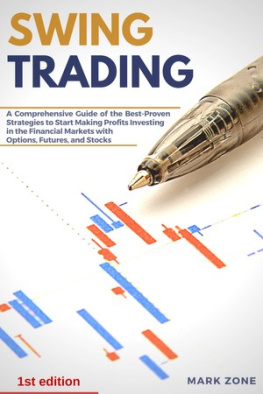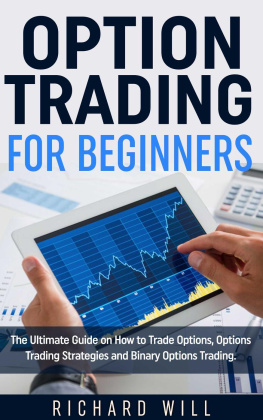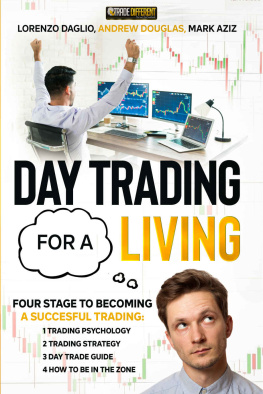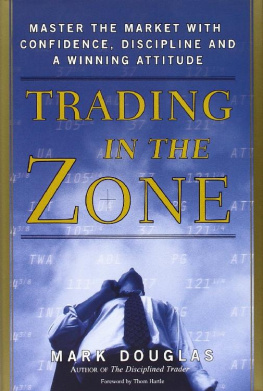Good for You, Great for Me
GOOD FOR YOU, GREAT FOR ME
Finding the Trading Zone and Winning at Win-Win Negotiation
LAWRENCE SUSSKIND
Co-Founder, Program on Negotiation at Harvard Law School, and Founder of the Consensus Building Institute

PublicAffairs
New York
Copyright 2014 by Lawrence Susskind.
Published in the United States by PublicAffairs,
a Member of the Perseus Books Group
All rights reserved.
No part of this book may be reproduced in any manner whatsoever without written permission except in the case of brief quotations embodied in critical articles and reviews. For information, address PublicAffairs, 250 West 57th Street, 15th Floor, New York, NY 10107.
PublicAffairs books are available at special discounts for bulk purchases in the U.S. by corporations, institutions, and other organizations. For more information, please contact the Special Markets Department at the Perseus Books Group, 2300 Chestnut Street, Suite 200, Philadelphia, PA 19103, call (800) 810-4145, ext. 5000, or e-mail .
Book Design by Jack Lenzo
Library of Congress Cataloging-in-Publication Data
Susskind, Lawrence.
Good for you, great for me : finding the trading zone and winning at win-win negotiation / Lawrence SusskindFirst edition.
pages cm
Includes bibliographical references and index.
ISBN 978-1-61039-426-0 (e-book) 1. Negotiation in business. I. Title.
HD58.6.S87 2014
658.4052--dc23
2013050425
First Edition
10 9 8 7 6 5 4 3 2 1
To all of my students from whom I have learned so much
CONTENTS
Good for You, Great for Me
MY WIFE, LESLIE, came dashing up from the beach. We were renting a small cottage by a lake in New Hampshire. For us it was Golden Pond, an idyllic place to spend time with our two young children. We managed to scrape together just enough to afford a two-week vacation.
Youll never guess who I was just talking to, she gushed. Ralph. He says that they are selling the cottage. Their son is getting divorced. He wants to cash out his share of the property. I told him we would absolutely buy the place.
I thought for a moment. How much are they asking?
I dont know, she said. I told him you were the negotiator and you would handle the details.
My mind raced. I could certainly see myself spending a lot more time by the lake, but could we afford it? What had Leslie promised? Owning the cottage would be terrific, but what was Ralphs asking price? I had nothing to go on. I tried to estimate what the annual rental income would be if we bought the cabin but didnt live in it. My back-of-the-envelope estimate (based on the rent we were paying) was that we could clear about $15,000 each year after taxes and expenses. At prevailing interest rates, calculating very quickly, we could use that money to cover a mortgage of about $85,000.
When I talked with Ralph later that afternoon, there was an ironic smile on his face. He knew I was boxed in. Youve been great tenants, and we know how much you love the place. We were delighted when Leslie said you wanted to buy it. I thought to myself, What has Leslie gotten me into?
Whats the price? I ventured.
Well be very sad to leave, he said. Since none of the cabins has sold since the original owners bought them seven years ago, its hard to know what theyre worth. With the common land owned by the lake association, it makes it hard to calculate the actual value of each cottage. In addition to your own cottage, you know, youll own one ninth of the lake. I could feel his eyes boring into me.
$105,000, he said. I think thats really fair. Were glad to be selling the cabin to people who love the place as much as we do. And, its only 90 minutes from Boston. Youll get to use it all the time.
Ralph and I both knew that Leslie had more or less made a commitment. I would have to find a way to finance the purchase. He was the business manager for a famous magazine and a highly experienced negotiator. I was just starting out. His wife, a local real estate agent, had been quite firm when Leslie made the original deal with her to rent their cottage. I felt trapped, but excited. I had no time to talk to anyone. Could we handle a second mortgage? Could we swing a $20,000 down payment by refinancing our primary mortgage?
Ralph, I said. Since you are moving out of state, would you be willing to leave the current furnishings, and include them in the sale price? Done, he said. (I figured that would save me about $10,000.) That felt like a victory. I could see a deal taking shape. Presumably I could get an $85,000 mortgage, find $20,000 for the down payment, and avoid the cost of having to furnish the place.
Ive always wondered whether he really had $105,000 (or even less) in mind as his final selling price. Unfortunately, I never asked the questions that would have allowed me to find out. I was in too much of a rush to close the deal. I didnt try to imagine the speech he would have to give to his wife and son to be able to declare victory.
Once Ralph talked to Leslie, and she indicated that we would buy the cabin, we were in what I call the trading zone. That is, both of us had reason to be optimistic there was a deal to be done. He was under a lot of pressure from his back table, and Leslie had her heart set on a family future by the lake, putting pressure on me. I had no idea what the cottage was worth on the open market. I was sure, though, that if I didnt close the deal quickly another buyer would swoop in and take the cottage from us. You enter the trading zone when both sides begin to believe that a deal space exists between the lowest amount one side is ready to accept and the highest amount the other side is willing to pay (or can afford).
In one sense, the trading zone is a state of mind. If both sides are optimistic about reaching an agreement, theres a good chance they will succeed. Of course, how they interact is important. If Ralph had opened with an entirely unreasonable demand, I would have had to walk away and disappoint my wife. If we hadnt paid attention to what the other side wanted and needed, we might have slipped right out of the trading zone. So the trading zone is not just a state of mind, it is an actual deal space circumscribed in very specific ways.

I DIDNT HANDLE THE PRESSURE of the negotiation very well. I was in too much of a rush. I should have slowed everything down and found a way to do a lot more homework. I should have asked more questions to determine Ralphs lower limit and to gauge the pressure he was under to get the deal done. Might he have been willing to drop the price another $10,000 if I agreed to sign a letter of intent that afternoon? On the other hand, I knew Leslie would be terribly disappointed if the cottage slipped through our fingers. There were probably a dozen other summer renters ready to buy the cottage (or maybe rent from us if we bought it) as soon as word got out that the unit was for sale. At least, thats what I told myself.
Once you are in the trading zone, and the parties are more relaxed about reaching a deal, the chances of reaching a mutually advantageous outcome increase exponentially. The whole point of getting into the trading zone is that information is more likely to be shared that allows both sides to meet their interests at the lowest possible cost. By exploring lots of options, or potential trades, the parties are more likely to do better for themselves, with less tension and a lower risk of failure than would otherwise be the case.
Next page








